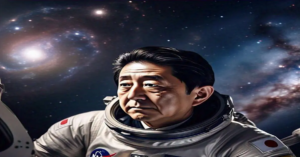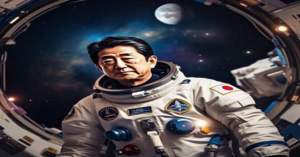Shinzo Abe three arrows economic policy
Shinzo Abe: A Legacy in Japan’s Global Vision

Introduction
Shinzo Abe, Japan’s longest serving prime minister Shinzo Abe has left an indelible impression on the international community. By recasting Japan’s role in the world through foreign policy, Abe took a country that passively rode the wave of globalization when it practiced gunboat diplomacy into a strategic actor. From remaking Japan’s pacifist identity to cultivating Indo-Pacific partnerships, Abe’s legacy is one of audacious goals, ideological clarity and international outreach. In this blog we examine his vision on the world, some of his key foreign policies, and analyze how he will be remembered as a leader to Japan and to the world.
Shinzo Abe Rise and Political Background
Shinzo Abe Early Foundations
Born in 1954, Shinzo Abe was himself born into a powerful political family. His grandfather was a former prime minister, Nobusuke Kishi, and his father, Shintaro Abe, was foreign minister. Abe was educated in political science at Seikei University and continued his studies at the University of Southern California. These experiences helped populate his lens with a global view that would inform how he would lead in the future.
First Premiership and Resignation (2006–2007)
Abe’s first term as prime minister began in 2006 and ended in 2007 as a result of his health and political difficulties. He showed his nationalist color, and the seeds of an agenda to restore Japan’s standing in the world at a time when it had lost much of its international clout had already begun to sprout.
Shinzo Abe Reinventing Global Role (2012–2020)
Abenomics: A Domestic and International Strategy
The Three Arrows of Abenomics
When Abe returned to power in 2012, he announced Abenomics, a full- scale economic reform program based on:
-
Aggressive monetary easing
-
Flexible fiscal policy
-
Structural reforms to boost productivity
The purpose of these reforms was to revive the domestic economy, and to demonstrate that Japan was again competitive internationally.
Shinzo Abe Restoring Economic Confidence
Due to the policies made by Abe, Japan showed itself as an attractive investment location. Japanese multinationals grew abroad, and inward investment and global faith in Japan’s economy were restored.
Shinzo Abe National Security Reforms

Reinterpreting Article 9: From Pacifism to Proactive Defense
In 2015, Abe passed laws that enabled Japan to join in collective self-defence, shattering Japan’s postwar pacifism. These have enabled Japan’s Self-Defence Forces to assist allies in need, thus uplifting the country’s strategic position in a difficult neighbourhood.
Strengthening the U.S.-Japan Alliance
Abe had strong relationships with the U.S., such as President (s) Barrack Obama, and (Donald Trump).
Shinzo Abe The Indo-Pacific Strategy
This idea eventually turned into the nucleus of Japan’s foreign policy, and was adopted by the US, Australia and India.
Key Pillars of FOIP
-
Rule of law
-
Freedom of navigation
-
Open markets and free trade
-
Quality infrastructure development
The FOIP was an endeavour by Abe to create a coalition of democracies that could balance China’s rising influence both in Asia and Africa.
Reviving the Quadrilateral Security Dialogue (Quad)
Abe was the architect of the revival of the Quad, a strategic dialogue among Japan, the United States, Australia, and India. Though informal still, it helped set the stage for coordinated security efforts and joint military exercises in the Indo-Pacific.
Engagement with ASEAN and Africa
Abe also enhanced relationships with member states of the Association of Southeast Asian Nations (ASEAN) and facilitated investment flows to Africa from Japan in the form of the Tokyo International Conference on African Development (TICAD). His government had tried to present alternatives to Chinese-led development models, stressing transparency, sustainability and local participation.
Multilateralism and Japan’s Global Leadership
Championing Free Trade Amid Global Protectionism
Following the US’ exit from the Trans-Pacific Partnership (TPP) in 2017, Abe played a leading role in achieving the coming into force of the Comprehensive and Progressive Agreement for Trans-Pacific Partnership (CPTPP). The action confirmed Japan’s position as a world leader in defending free trade and multilateralism.
Climate and Sustainable Development Initiatives
Although Abe has not always made this a priority, but had declared his support for climate action through implementation of the Paris Climate Agreement. His administration also championed innovation in green energy, involving technologies like hydrogen fuel and projects of low carbon development.
National Identity, History, and Controversies
Nationalism and Historical Narratives
Abe’s nationalism often led to tensions with the neighbours. His pilgrimages to the Yasukuni Shrine, which is dedicated to Japan’s war dead, including convicted war criminals, were interpreted by China and South Korea as needling behavior. At home he promoted textbook reforms to make history more patriotic.
Constitutional Reform: A Lifelong Dream Unfulfilled
Abe had long aimed to amend Japan’s post-war Constitution, especially Article 9, in order to institutionalize the legitimacy of the Self-Defense Forces. Although he secured political support, public opposition and legal limitations prevented this objective from being achieved under cross-examination.
A Legacy That Outlives Leadership
Influence on Successors and Policy Continuity
Abe’s successors, Yoshihide Suga and Fumio Kishida, inherited and broadly continued his foreign policy agenda. And yet key components of the Abe Doctrine, including FOIP, the Quad, and higher defence budgets, are the linchpins of Japan’s international strategy.
A Respected Statesman in Global Diplomacy
Abe’s diplomatic skill was strongly admired on the international stage, and he was praised for his long-term strategic view. July 2022 saw his assassination amid widespread worldwide mourning, which underlined how pervasive his revivalist leadership had become.
Shinzo Abe Conclusion
Redefining Japan’s Role in the 21st Century
Shinzo Abe’s vision extended far beyond Japan’s domestic politics. He sought to redefine the country as a proactive contributor to global stability and economic prosperity. His policies, though sometimes polarizing, elevated Japan’s global stature and created a more assertive national identity.
In an era marked by the decline of multilateralism, rising authoritarianism, and regional tensions, Abe’s advocacy for a rules-based, democratic, and open international order remains both relevant and inspiring. His strategic foresight and dedication to global diplomacy cement his legacy as one of the most consequential Japanese leaders in modern history.
References and Further Reading
-
Ministry of Foreign Affairs of Japan (MOFA)
-
Shinzo Abe: The Iconoclast Who Changed Japan – Richard Katz, Foreign Affairs
-
The Abe Doctrine: Japan’s Proactive Pacifism and Security Strategy – Christopher W. Hughes
-
Japan Times, NHK World, Nikkei Asia archives
-
Japan Rearmed: The Politics of Military Power – Sheila A. Smith
Leave a Reply
Want to join the discussion?Feel free to contribute!